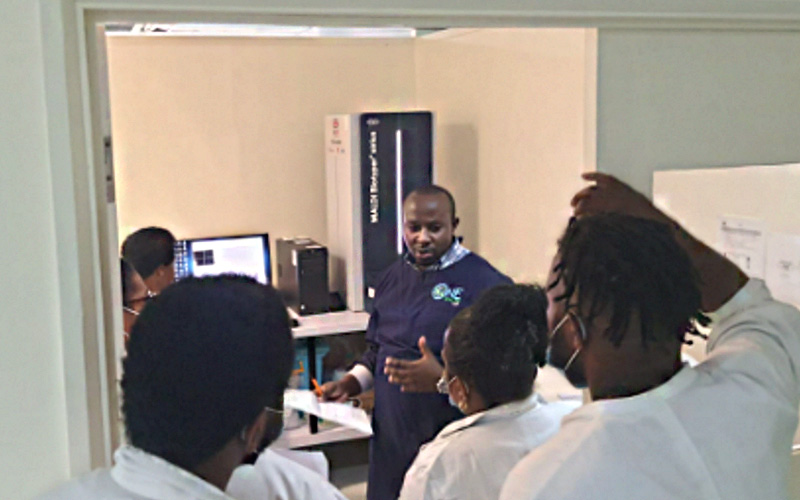
Burnet Institute has been granted AUD$6.35 million in funding for two years by the Fleming Fund to begin Phase Two of our work in addressing antimicrobial resistance (AMR) in Papua New Guinea (PNG).
It comes at a crucial time as drug-resistant bacteria continue to spread freely, posing a significant threat to global health and contributing to millions of deaths from infectious diseases each year.
Building on the success of Phase One of the program, which laid the groundwork for our efforts, Phase Two aims to further strengthen approaches in both the human and animal health sectors. The project will bring together experts to collaboratively support PNG’s domestic responses to AMR.
Burnet Fleming Fund program director Professor Robert Power AM emphasised the importance of this next phase.
“Phase Two is all about extending the project out to a broader One Health approach,” he said.
“This means we're not just looking at human and animal health anymore, but also considering aquaculture, like fisheries, and the environment.
“Antibiotic resistance spreads to fisheries and even into waterways, creating new microbes due to the misuse of antibiotics. This is really at the heart of what we're doing."
Professor Power said there will be two cross-cutting themes in Phase Two.
“These include exploring the impact of AMR on gender issues and focusing on enhancing cost-effectiveness and sustainability of the program.”
Having worked in PNG for more than 25 years, Burnet is leading the implementation of the Papua New Guinea (PNG) Country Grant component of the Fleming Fund — a £500 million UK Aid program helping to tackle AMR in low- and middle-income countries.
Working in partnership with colleagues across multiple agencies in PNG, Phase One of the project involved establishing governance structures, launching surveillance systems, providing laboratory renovations, delivering essential equipment and staff training.
Phase One informed national prescription advice for doctors in PNG national guidelines and shaped how AMR stewardship programs are planned and put into action.
It has influenced the implementation of infection prevention and control measures at Port Moresby General Hospital, and how antibiotics are prescribed by doctors at Goroka Provincial Hospital.
The Department of Health and Social Care (DHSC)’s Fleming Fund is a UK aid programme supporting up to 25 countries across Africa and Asia to tackle antimicrobial resistance (AMR), a leading contributor to deaths from infectious diseases worldwide.
The Fleming Fund invests in strengthening AMR surveillance systems through a portfolio of country grants, regional grants and fellowships managed by Mott MacDonald, and global projects managed by DHSC.
